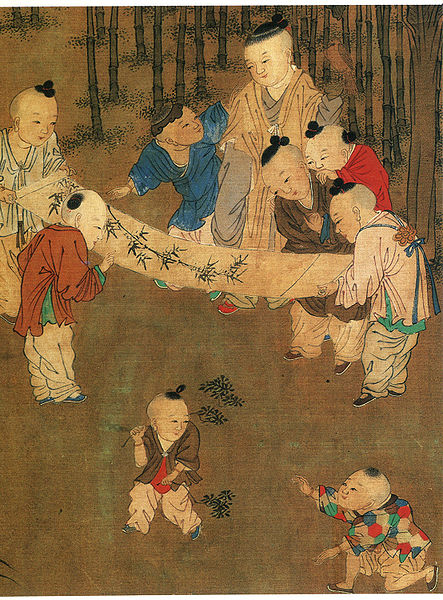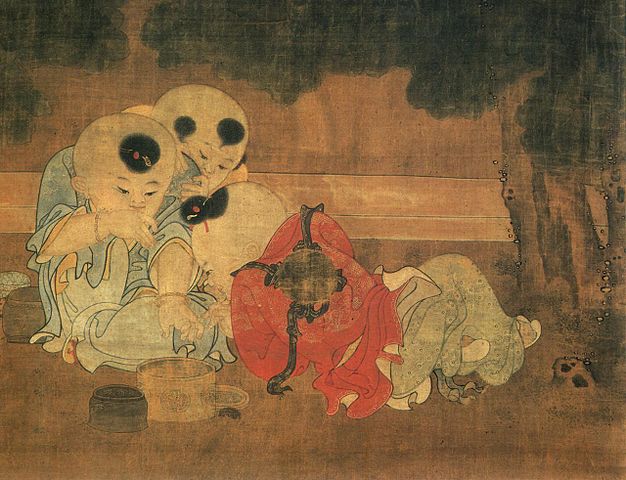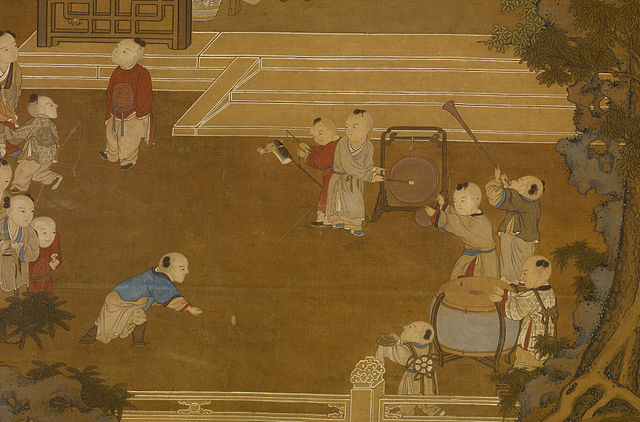
On February 10, Thammasat University students may enjoy some reading appropriate for the Chinese New Year at the TU Library.
Chinese New Year is a festival that celebrates the beginning of a new year on the traditional Chinese calendar.
In Chinese, the festival is commonly referred to as the Spring Festival.
The TU LIbrary collection includes many books about Chinese culture and civilization.
Marking the end of winter and the beginning of the spring season, observances traditionally take place from Chinese New Year’s Eve, the evening preceding the first day of the year, to the Lantern Festival, held on the 15th day of the year.
The first day of Chinese New Year begins on the new moon that appears between 21 January and 20 February.
Chinese New Year is one of the most important holidays in Chinese culture, and has strongly influenced Lunar New Year celebrations of its 56 ethnic groups, such as the Losar of Tibet, and of China’s neighbours, including the Korean and Vietnamese New Years,as well as in Okinawa.
It is also celebrated worldwide in regions and countries that house significant Overseas Chinese or Sinophone populations, especially in Southeast Asia.
These include Thailand, Singapore, Brunei, Cambodia, Indonesia, Malaysia, Myanmar, the Philippines, and Vietnam.
It is also prominent beyond Asia, especially in Australia, Canada, Mauritius, New Zealand, Peru, South Africa, the United Kingdom, and the United States, as well as in many European countries.
The Chinese New Year is associated with several myths and customs. The festival was traditionally a time to honor deities as well as ancestors.
Within China, regional customs and traditions concerning the celebration of the New Year vary widely, and the evening preceding the New Year’s Day is frequently regarded as an occasion for Chinese families to gather for the annual reunion dinner.
It is also a tradition for every family to thoroughly clean their house, in order to sweep away any ill fortune and to make way for incoming good luck.
Another custom is the decoration of windows and doors with red paper-cuts and couplets. Popular themes among these paper-cuts and couplets include good fortune or happiness, wealth, and longevity.
Other activities include lighting firecrackers and giving money in red envelopes.

To celebrate the occasion, here are some translations of Chinese poetry by the English author Arthur Waley who published them over a century ago, so they are out of copyright:
*
The Lychee-Tree
by Wang I [c. A.D. 120]
Sombre as the heavens when morning clouds arise,
Bushy as a great broom held across the sky,
Vast as the spaces of a lofty house,
Deep fretted as a line of stony hills.
Long branches twining.
Green leaves clustering.
And all a-glimmer like a mist that lightly lies
Across the morning sun;
All spangled, darted with fire like a sky
Of populous stars.
Shell like a fisherman’s red net;
Fruit white and lustrous as a pearl, . . .
Lambent as the jewel of Ho, more strange
Than the saffron-stone of Wu.
Now sigh we at the beauty of its show.
Now triumph in its taste.
Sweet juices lie in the mouth;
Soft scents invade the rind.
All flavours here are joined, yet none is master;
A hundred diverse tastes
Blend in such harmony no man can say
That one outstrips the rest. Sovereign of sweets.
Peerless, pre-eminent fruit, who dwellest apart
In noble solitude!
*
Hot Cake
by Shu Hsi [c. A.D. 281]
Winter has come; fierce is the cold;
In the sharp morning air new-risen wc meet.
Rheum freezes in the nose;
Frost hangs about the chin.
For hollow bellies, for chattering teeth and shivering knees
What better than hot cake.”
Soft as the down of spring,
Whiter than autumn wool!
Dense and swift the steam
Rises, swells and spreads.
Fragrance flies through the air.
Is scattered far and wide.
Steals down along the wind and wets
The covetous mouth of passer-by.
Servants and grooms
Throw sidelong glances, munch the empty air.
They lick their lips who serve;
While lines of envious lackeys by the wall
Stand dryly swallowing.
*
New Corn
by T’ao Ch’ien (A.D. 365-427)
Swiftly the years, beyond recall.
Solemn the stillness of this fair morning.
I will clothe myself in spring-clothing
And visit the slopes of the Eastern Hill.
By the mountain-stream a mist hovers,
Hovers a moment, then scatters.
There comes a wind blowing from the south
That brushes the fields of new corn.
*
Dreaming that I went with Lii and Yil to visit Yuan Chen
by Po Chu-i
Written in Exile
At night I dreamt I was back in Ch’ang-an;
I saw again the faces of old friends.
And in my dreams, under an April sky,
They led me by the hand to wander in the spring winds.
Together we came to the village of Peace and Quiet;
We stopped our horses at the gate of Yuan Chen.
Yuan Chen was sitting all alone;
hen he saw me coming, a smile came to his face.
He pointed back at the flowers in the western court;
Then opened wine in the northern summer-house.
He seemed to be saying that neither of us had changed;
He seemed to be regretting that joy will not stay;
That our souls had met only for a little while,
To part again with hardly time for greeting.
I woke up and thought him still at my side;
I put out my hand; there was nothing there at all.

Here are some translations by Stanton Hager of Du Fu’s poems which have been posted online:
*
Night Thoughts While Traveling
Shore grasses, wind-thinned, bend before a breeze.
Alone on deck, I gaze above the tall mast at the night sky.
Stars, drooping down, disappear into vast flat plains
As the moon leaps up out of the great Yangtze.
Too late for literary fame, I must cast on that a cold eye.
Aged, ill, failing my duties, I must resign my post.
Drifting, ever drifting between sky and sand,
With what can I compare myself? None but a lost gull.
*
Clear After Rain
Autumn downpour ended,
stormclouds dwindle to feathers;
journeying ten thousand miles,
boldly in blows the west wind.
At dawn the countryside
gladdens the eyes of farmers
grateful that the rains
have not ruined their crops.
Bits of summer green
still cling to the willows;
thousands of tiny pear blossoms
speckle red the hills;
yellow eggplants entice
with luscious fruitfulness–
and a lone wild goose
leaps into the clear blue sky.
*
Autumn Rains Lament 2
In late autumn, lashing winds still thrash unceasing rains;
All the world’s seas, all watery wastes, uplift into one black cloud.
These dark days, who can say a horse going is not an ox coming?
Who now can distinguish the muddy Jing River from the clear Wei?
Sodden, wheat is sprout-ruined; millet ears are blackened by rot.
Farmers and their wives from every village report the same bad news.
In Chang-an, a silk bed-quilt can be had for a mere bucket of rice,
And both parties, their lots improved, deem the trade fair.

(All images courtesy of Wikimedia Commons)
